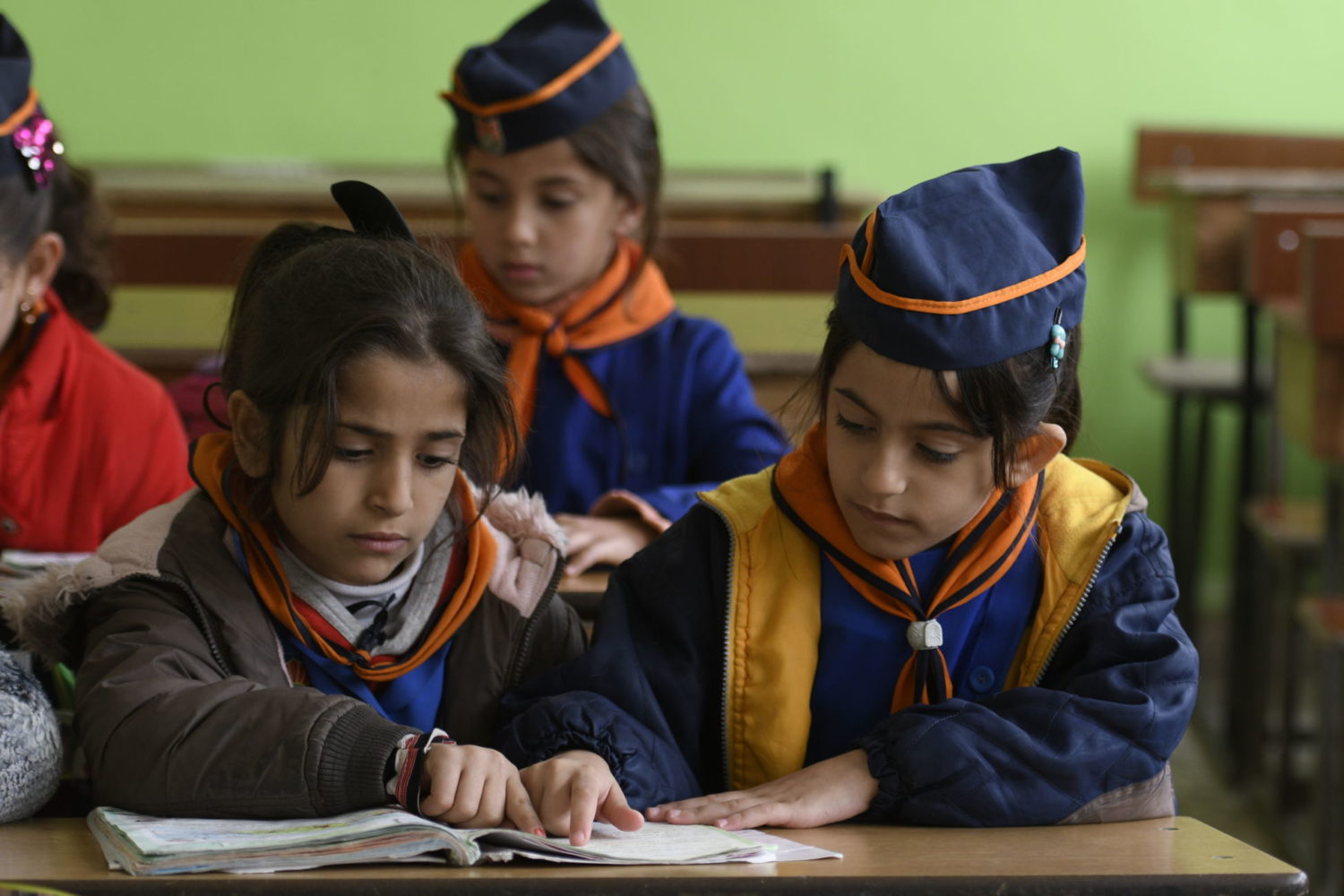Spokespeople available
Photos and broll from the visit available at: https://weshare.unicef.org/Package/2AMZIF35MZD9
13 December 2018 – With an estimated 4 million children born in Syria since the conflict started nearly eight years ago, half of the country’s children have grown up only knowing war, UNICEF said today. Reaching them wherever they are and meeting their immediate and future needs remains a priority.
“Every 8-year-old in Syria has been growing up amidst danger, destruction and death,” said Henrietta Fore, UNICEF Executive Director, at the end of a five-day visit to the conflict-ravaged country. “These children need to be able to return to school, receive their vaccinations, and feel safe and protected. We need to be able to help them.”
Visiting some of the newly accessible areas in Syria, Fore saw first-hand how the conflict has affected families, children and the communities in which they live.
In Douma, East Ghouta, just a few months after a five-year siege was lifted, displaced families are beginning to return and the town’s population is now estimated at 200,000. Many families have moved back into damaged buildings, and the threat of unexploded ordnance is pervasive. Since May 2018, 26 children have reportedly been killed or injured in all of East Ghouta as a result of explosive remnants of war.
“In Douma, families are living – and raising children – amidst the rubble, struggling for water, food and warmth in this winter weather,” Fore said. “There are 20 schools, and all are overcrowded and in need of training for young teachers, books, school supplies, doors, windows and electricity.”
Such is the level of destruction in Douma that a non-governmental partner organization, with UNICEF support, set up an informal clinic in the hall of a damaged mosque.
In Hama, the UNICEF Executive Director visited a centre where young girls and boys learn how to stand up against gender-based violence.
“Since the conflict started, children and young people have become increasingly violent,” said 15-year-old Zein, a regular visitor to the centre. “Bullying, harassment, beatings, early marriage – all these forms of violence increased. Children and young people see violence around them everywhere and view it as normal. We need to stop that, by raising awareness about how to model better behaviour.”
On the last day of the trip, Fore visited Deraa, home to nearly 1 million people. Displacement levels in the governorate are high, putting additional strain on limited services.
Half of the governorate’s 100 primary health care centres have been damaged or destroyed.
The two main water stations providing water to Deraa City were located in previously contested areas, causing frequent water cuts and dependency on water trucking services. UNICEF has helped set up a 16-kilometer pipe to bring safe water to 200,000 people.
Of nearly 1,000 schools in the governorate, at least half require repair. Classrooms are overcrowded. For children who have missed years of learning due to the war, first-grade students can vary in age from 6 to 17 years of age. Many students are dropping out of school – the drop-out rate across Syria is at 29 per cent.
“Schools are where the seeds of social cohesion are first planted,” said Fore. “We need quality education that makes children want to go to school, and stay in school.”
As access has improved, UNICEF is scaling up its health, nutrition and child protection support services, helping schools, offering accelerated learning programmes for students who have missed out on years of schooling, training teachers, and repairing sewage networks, water pipelines and treatment plants.
In areas that remain hard to reach, UNICEF renews its call for regular and unconditional access and continues to work with partners to provide immediate assistance whenever possible.
Throughout Syria, UNICEF calls for the protection of children at all times and for a stronger emphasis on re-stitching the social fabric ripped apart by years of fighting.
“Almost eight years since the conflict started, the needs are still great,” Fore said. “But the millions of children born during this war and growing up amidst the violence are ready: they want to learn. They want to play. They want to heal.”
For more information, please contact:
Unicef UK Media Team, 0207 375 6030, [email protected]
Alexandra Murdoch, 0207 375 6179, [email protected]
About Unicef
Unicef is the world’s leading organisation for children, promoting the rights and wellbeing of every child, in everything we do. Together with our partners, we work in 190 countries and territories to translate that commitment into practical action, focusing special effort on reaching the most vulnerable and excluded children, to the benefit of all children, everywhere.
Unicef UK raises funds to protect children in danger, transform their lives and build a safer world for tomorrow’s children. As a registered charity we raise funds through donations from individuals, organisations and companies and we lobby and campaign to keep children safe. Unicef UK also runs programmes in schools, hospitals and with local authorities in the UK.
For more information please visit unicef.org.uk


